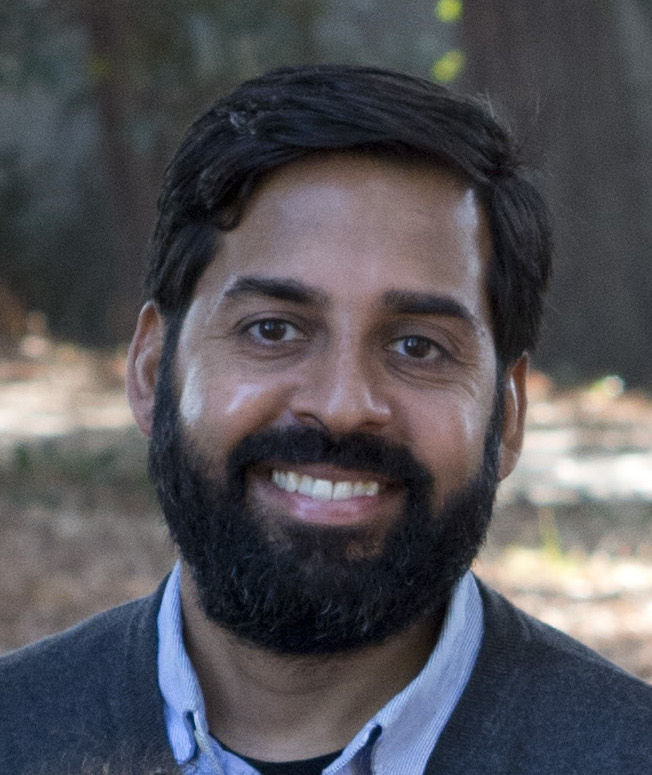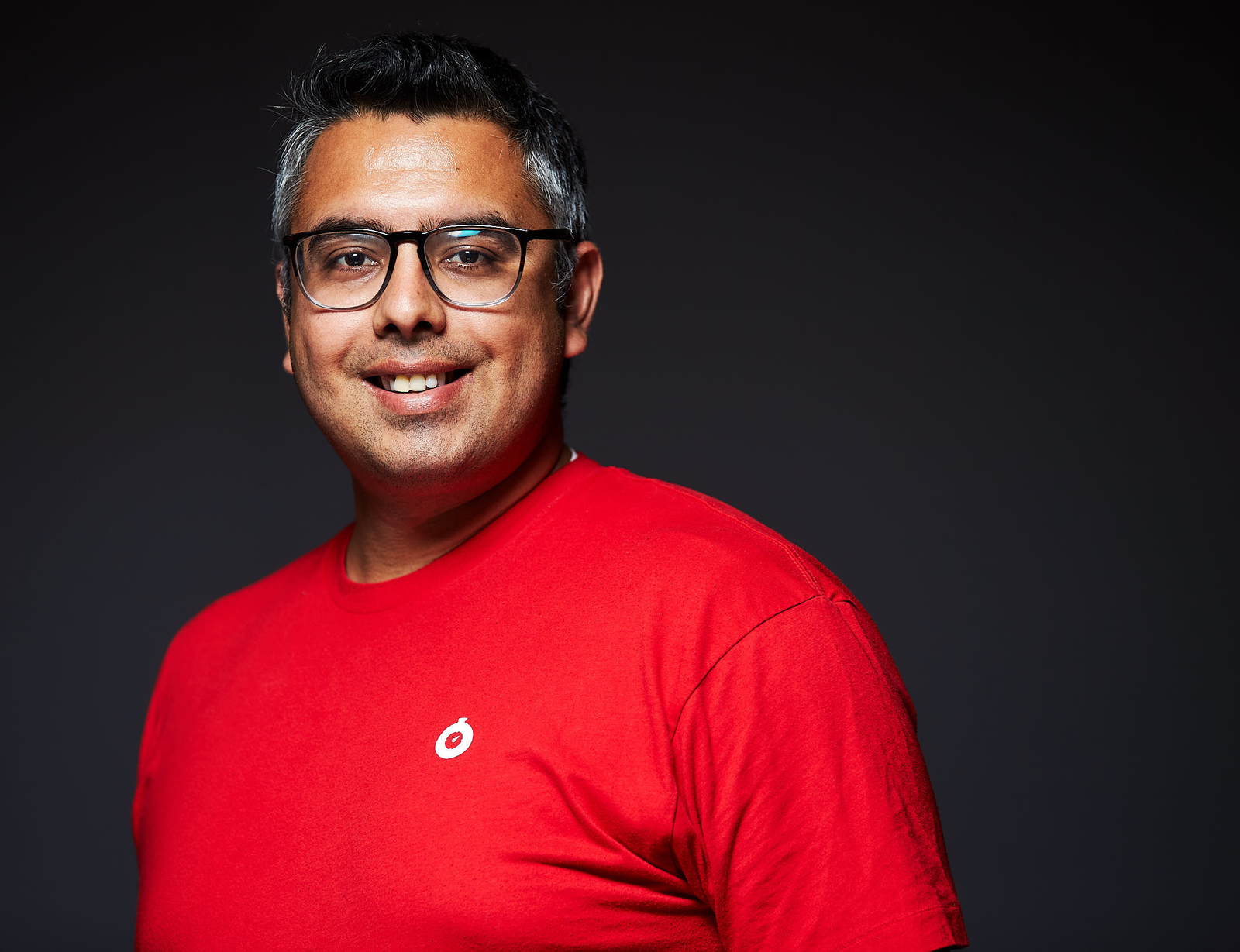Episode 6 covers building trust across differences with Annyce Davis (@brwngrldev on Twitter or annycedavis on LinkedIn). Annyce is a software developer and leader focused on Android and mobile development. She shares her mobile expertise through videos, blogs, and conference talks (ask her to present at yours!). Annyce is an engineering manager who leads the software team at Zola Electric, which provides clean energy to households that suffer from unreliable energy grids.
We talk about building trust in a business setting, how different people may value different ways to build trust, and how to learn and do this in your own team.
Episode references:
- The culture map by Erin Meyer: https://www.erinmeyer.com/book/ (or fnd it at your library)
- Talk to Me Right! by Annyce Davis: http://adavis.info/2019/02/talk-to-me-right.html (or watch it here)
Transcript
JENNIFER: Welcome to Storytime with Managers, a podcast by Cohere.
Hi, I’m Jennifer Tu, and I’m here with Annyce Davis to talk about managing people who are different from yourself. Annyce, can you tell us a little about yourself?
ANNYCE: Sure. Thanks for having me, first. I spend my day-to day-working as a software developer and leader. I’ve specifically been focused on Android and mobile development for the past several years. As part of that, I’m an Android Google Developer Expert, and this means that I just get to spend a lot of time developing videos and blog posts and conference talks for the Developer Community. And that’s something that I’m very proud of and super passionate about. Right now, I work as an Engineering Manager at a social impact startup called ZOLA Electric, and we do clean, transformative energy to households that suffer from unreliable grids, which is primarily based in Africa. That’s just a bit about me.
JENNIFER: And when we were talking earlier, you mentioned that you are an expat who is working in a different country than the US. And I was wondering if you could say a little bit about where you’re from and where you are now, how long you’ve been there, things like that.
ANNYCE: Sure. I’m originally from the Washington, D.C. area in the United States. And I’m currently located in Amsterdam, The Netherlands. I’ve been here for a year and a half with my family and it’s been quite the adventure.
JENNIFER: Cool. And have you been managing there the whole time?
ANNYCE: Yeah, I’ve been a manager here the whole time. I was promoted in February to be in charge of the entire software team, whereas before I was in charge of the Android development team.
JENNIFER: One thing that I’ve noticed when I’ve talked with friends who have immigrated someplace, whether that’s in or out of the US, is that sometimes you don’t realize that there’s a cultural difference until much, much later. There’s some cultural differences where it’s a surprise right away, and some that are much, much later. And one thing I’m wondering is, are there things that you do in a management context that help you be a little bit more alert to these unexpected differences or things that you found that help you identify areas where you might expect some cultural difference?
ANNYCE: Definitely. So the number one thing that I do and that I return to time and time again is my favorite book on a subject, The Culture Map. In it, it breaks down like four different areas of how people communicate and act in a business context. So just to give like a concrete example around trust and how people build trust in a business setting. Some cultures build trust based on past performance, such as like in the US. It’s like, “I trust you because you’ve delivered XY Z in the past. Therefore, I have confidence that you’ll be able to deliver ABC in the future.” Whereas other cultures build trust based on relationships. Like for example, I manage a team of people based in Nigeria and that culture is very much based on relationship is the key to having trust in someone. So we’re from the same area. I know your wife. We eat lunch together. So I have no reason to believe that you wouldn’t be able to fulfill an assignment. So just two very different ways of building trust in a business setting.
JENNIFER: Wow. Did you know going into it managing this team in Nigeria that a lot of their trust would be built off of a relationship?
ANNYCE: No. [Laughs]
JENNIFER: How did you find out? How did you figure it out?
ANNYCE: There’s a story for that. I was initially recruiting several people there acting as the hiring manager. I had to work with the local HR team that’s based in Nigeria. And one thing I started noticing is what I perceived as unresponsiveness, or maybe something seemed like it was somewhat strained or maybe even antagonistic communication. And it left me really confused and frustrated. And I was thinking to myself, “Okay, I’ve never had this sort of experience trying to work with an HR person before to recruit an individual. What could be causing the issue?” So I learned more about how different cultures communicate in business setting.
And then I took a trip to Nigeria. And it completely changed everything. I spent only one week there, but I really focused my time on developing relationships with the people that I needed to work with. So from bringing Stroopwafels when I arrived for the whole office [laughs] to having lunch with everyone every day, coffee runs. It was all about establishing relationships.
And then after that, I noticed a big difference in the communication that I was receiving from the team. And it was so much more positive. And yeah, I think that’s like a key thing I learned is you have to approach people the way that they are used to behaving and you can’t expect others to adapt. So if you have that power to modify your communication style, then you should absolutely do it.
JENNIFER: That’s really neat one. One thing I’m really curious about is how you zeroed in on building relationships. Was that something that you knew before you got on the plane to Nigeria that you would need to do? Or was that something you learned as you went?
ANNYCE: It was something that I learned from reading The Culture Map about how people in Nigeria build trust. That’s when I learned it’s based on relationships. And the way I build trust is based on past actions. I think another thing, just taking one step back, is that The Culture Map also helped me to see how much I am American. Sometimes I do things and it comes naturally to me. And I don’t realize that that’s actually a very American way of doing something. And so, reading that book and understanding that and seeing the differences and like basically mapping out the differences helped me to realize, “Okay, if I’m going to make a success of my efforts here in Nigeria, then these are the ways that we differ and these are the things that I’m going to need to change.”
JENNIFER: Are there ways or does the book mention other ways to build trust besides past performance or relationships or are those kind of the two ways that people operate in the world?
ANNYCE: Those are the two sides of the spectrum. So like, of the eight different dimensions, there’s variation in between based on the country that the person is from. So let’s say, like the far end of the spectrum is kind of like Americans’ past performance and then Nigerians’ relationship. And then somewhere in between, the various other cultures will fall. So, each distinction or each grouping has this kind of range.
JENNIFER: Yeah, that makes sense to me.
ANNYCE: Yeah.
JENNIFER: One thing that I’m kind of wondering about is it feels like in this case, you were able to turn to a book that helped you a lot with figuring out the cultural differences. And I’m wondering if you’ve found other resources that have also been helpful or if there have been things that you’ve discovered as you’ve navigated this whole new world in the last year and a half.
ANNYCE: I think one thing that I find really helpful is, first of all, asking lots of questions. Coming here, I also now have lots of Dutch colleagues, which I didn’t before. And their communication style is also quite different from how we communicate typically in business settings as Americans. And so, I just ask questions like, “Hey, I noticed this thing happened. Is that common? Oh, okay. So in this situation, what would you think about it?” This is a concrete example in business. Dutch people like direct, honest feedback and they can take it direct and honest. And by giving direct, honest feedback, that means that you kind of have faith in them and you believe that they can improve and change. Whereas more so in American culture, we kind of sugarcoat things and we hint at what needs to be improved, more or less, without being as direct as you can be when you’re talking to someone who’s Dutch. So just kind of like learning those differences comes from asking questions.
And then also I’m always reading things. I even did a Google search on what is a typical Nigerian manager like. And I just started reading all these blog posts, all these forums. I just wanted to try to get a sense of, I’m bringing new people on. What possibly was their experience previously with their manager so that I can try to help bridge the gap between how I act as a manager and maybe what they’re used to, as a manager. And that honestly have been really helpful because I would just say, sometimes I would talk to someone during a one-on-one and I’d say, “Are you used to something like this?” And they’re like, “Yes, I am used to that.” And I’m like, “Oh, okay. Well, one thing I like to do is X, and it’s because of this.” And I think that has really helped me to have better relationships with the people on my team.
JENNIFER: Does that mean you’re not necessarily adapting to what your reports want, but you are more setting expectations for this is what I do and this is why, so that way, you can kind of work together on it?
ANNYCE: Yeah. And then I like to not think of it so much as like ‘this is what I do’, but more like ‘this is our team’s culture’. I want them to understand that just because maybe you worked at a previous company and almost everyone was maybe based only in Russia or everyone was based only in Nigeria. This is a multi-cultural distributed team. And so, our team’s culture is more like this. So that’s kind of how I’m approaching it.
JENNIFER: Do you find that you’ve had to manage any kind of cultural gaps or differences across the company between, I guess, the Nigerians and the Dutch and anyone else who might be mixed in there?
ANNYCE: Yes. Unfortunately, there have been some misunderstandings between people. Well, first of all, I recommend everyone to read the book. I mean, I can’t force them to do it, but I just recommend everyone to read it. I also created a talk this year. I do a lot of conference speaking. So one of my talks for this year is called Talk to Me Right! And it’s about communication on tech teams. And I kind of break down 12 points to improving communication. At first, I delivered it internally and then just got feedback from a team and a lot of people were like, “Okay, that is a good point. I didn’t really realize that. That’s something I’m going to try to work on.” And it’s also a message I try to reinforce in one-on-ones. But unfortunately, there’s a lot of times where there’s some friction between people and you have to just kind of say, “Okay. This conversation didn’t go in the direction that we would like. Here’s what we would like to do going forward.” And then talk to each person separately. And I think that’s helped more or less move over a lot of issues.
JENNIFER: Do you mind giving an example from your talk of something that people can do right away? Like, one thing that people can change right now to start improving communication.
ANNYCE: I think one thing people can do right now is to be explicit. And so when I say be explicit, just as a concrete example, I may say to someone, “Hey, you please look into this issue. This is high priority.” And they’ll say, “Okay, sure. Sounds good.” And then two hours later, I follow up with them and I go, “Hey, where are we on the issue?” “Oh, I haven’t started looking at it yet. I was wrapping up this other task.” So, I’m frustrated because I think, “Oh, why wouldn’t they look at a high priority issue and they’re working on some low priority task? It doesn’t make sense to me.” Whereas the other option is to look at myself and say, “Was I explicit that I defined what high priority means for my team? Did I specify in my request, this is a high priority issue. Please let me know if you’re able to reproduce it within the next 30 minutes.” For some people, they really need you to be that explicit because their concepts of ASAP or very important end-of-day is probably not the same as yours. So that’s one thing you can do just right away, is just being explicit.
JENNIFER: I have a question about this. I like the idea, and one thing I’m kind of struggling with a little bit is how can you identify places where you need to be more explicit? I could imagine me saying, “Do this ASAP,” and not even starting to think that ASAP might mean one thing to me and one thing to someone else.
ANNYCE: Yes. I think it comes with experience, partially, because when you say ‘do this ASAP’ to someone and then they don’t do it, I think that’s a good example of, “All right. I think I need to be more explicit with this person next time.” Also, if you kind of know the cultures of the people in your team that you’re working with, you’ll know more or less if their concept of time is similar to your concept of time. Where some cultures, time is just very fluid. And so, they don’t feel a lot of pressure to do things. So you’d have to kind of be very explicit if you’re working with that culture. Whereas maybe other cultures are closer to your own as far as the concept of time is concerned, you could probably say ASAP and they would totally get it. I think for me, the level that I give depends on my past experience if I have asked someone to do something and it didn’t meet my expectations, then I say, “Okay. Next time, I need to be more explicit.”
JENNIFER: Yeah, that makes sense. Are there a couple of, I guess, areas that you think about when you give yourself a checklist of do I need to be more explicit about this?
ANNYCE: Yeah. Here’s a good example. I tend to say things like, “It would be really nice if everyone could participate in the pull request.” So then I’ll say that and in my mind that means from here on out, everyone will add comments in pull requests. Clearly, that’s what I just said. And then like one or two more pull requests will come through, and not everyone will participate. And then I think to myself, “Okay, somehow I messed up this message. I didn’t deliver this message in the way that was effective. I need to be more explicit.” So then the next time I have a meeting, I say, “From here on out, everyone needs to leave at least one comment or question per pull request.” That way, I’m being more explicit. Maybe they don’t have any insights to offer, then they can just say, “This was great. Thanks for refactoring the code.” Or they legitimately had questions, but they didn’t feel comfortable to put them in a pull request. But now I’m opening up the door to say, “Look, you have to say something anyway. At least one thing. So if you have a question, go for it.”
JENNIFER: Yeah. That makes sense to me. Do you ever, between the first less explicit and the second more explicit communication, reach out to individuals and try to do temperature checks with individuals? Or do you do all of your analysis on your own?
ANNYCE: I do reach out to individuals. I have a junior Android developer that I work with and a senior Android developer who’s been working with me for longer. So sometimes if I notice maybe the junior Android developer isn’t maybe doing something that I’ve suggested, I may check in with her first and say, “Hey, I noticed this thing. Have you noticed it? What do you think? Is there anything I can do better?” Or I might also just check in with him, like, “Hey, I have a question for you. How did you do pull requests at your last company?” It’s like, “Oh, I didn’t do any.” Light bulb, “Okay, let’s start from there.” So, I do try to check in as well. It really helps me to know where they’re coming from, why they may or may not do something that I gently recommend.
JENNIFER: One thing that I’m kind of learning from you as you’re explaining this is it sounds like one thing you do when you ask people questions to understand where they are, is you ask a lot about what they’ve done in the past. I’m kind of wondering how you found this to work for you and if you found other styles of questions that have also worked.
ANNYCE: I think it works, maybe I get this from also hiring a lot of people, is that unfortunately or maybe fortunately, past performance is a predictor of future performance. So, I kind of feel like what someone is used to or what they’ve done and they tend to kind of marinate in that area for a while, especially like if they’re first joining a new team. It’s just like their fallback to their default thing that they do. I asked a lot of questions like that, “So what did you do on this team? When did you encounter this issue,” when I’m trying to hire someone. And it kind of makes sense to me to do the same when I’m doing one-on-ones with new people because I want to know what they’re used to and how they’re used to working to kind of help guide them towards what we want at our company.
JENNIFER: I think the part that really stood out to me is I’ve heard more commonly a variation of this, which is more ‘how do you like to work’. And I really like what you’re doing instead of how have you worked in the past, because that makes it a little bit easier for people to grab something really specific to bring up.
ANNYCE: Yeah. And I think when you ask people, “How do you like to work,” it’s their ideal, maybe. But how they actually do it, probably there’s a difference.
JENNIFER: Exactly. I wish I were someone who could take feedback immediately, but I know in practice, I need a little bit of warning of, “Hey, I’m going to give you feedback.” “Okay, I’m ready for the feedback.” And the difference between ideal and actual successful past is very different.
ANNYCE: Yes. I agree.
JENNIFER: I think we’ve got time for one more question, which is you mentioned hiring and that this is something that you’re doing quite a bit. And I’m wondering how trust builds into your hiring practices. Because I could imagine a clash between you wanting to understand past performance and someone who’s maybe referring a friend, bringing up the relationship.
ANNYCE: If I’m hiring someone who’s based in Africa, then I would rely more heavily on the relationship aspect of things if they were referred from another colleague because that trust of them is already there. But I do use a rubric when I’m like interviewing people, and that helps me not to be super biased because I want to give everyone a fair chance. So I have like a scale of one to five for a series of questions, and that helps me to kind of measure everyone equally. And then I leave some separate space for like comments or extra thoughts or how they were referred. I don’t know. I feel very comfortable with that solution when I’m hiring someone that’s based in Africa.
JENNIFER: Yeah. Have you, and this might not have happened, have you ever had a situation where someone fails your rubric but someone else in Nigeria is really vouching for that person?
ANNYCE: No, I haven’t had that situation. And I think part of what prevents it to an extent is that giving a recommendation for someone over firing someone is almost a reflection of you as a person. So I don’t think that people, they don’t take it lightly. They wouldn’t just vouch for another person and then potentially have it come back to them as, “Oh, you recommended this bad person to the company.” This is an example in certain villages. They will first talk to the village chief to find out, “Can this person afford to buy a solar system? Are they a reliable person?” They will talk to the village chief first. And that is enough to justify extending credit to someone, because that’s how important the referrals are and being honest with the recommendations and things. So, I think it’s a slightly different view on recommending someone or referring someone than what maybe we traditionally have in the States.
JENNIFER: Yeah, so you really have to trust their trust system?
ANNYCE: Yes.
JENNIFER: All right. This has been really, really illuminating. And I wish we could talk more, but we are out of time. If people want to reach out to you and and talk with you more about this or your talk or anything like that, what’s a good way for them to do that?
ANNYCE: The best way to reach me is probably Twitter. I’m @brwngrldev. You can pretty much find me there. And then also LinkedIn, Annyce Davis.
JENNIFER: Awesome. Thanks so much.
ANNYCE: Thanks for having me.
JENNIFER: Thanks for listening to Storytime with Managers by Cohere. Our theme music is by Kevin MacLeod and we are edited by Bryant from Zinc.
If you like this episode and want to hear more, tell us on Twitter. We are @wecohere.





